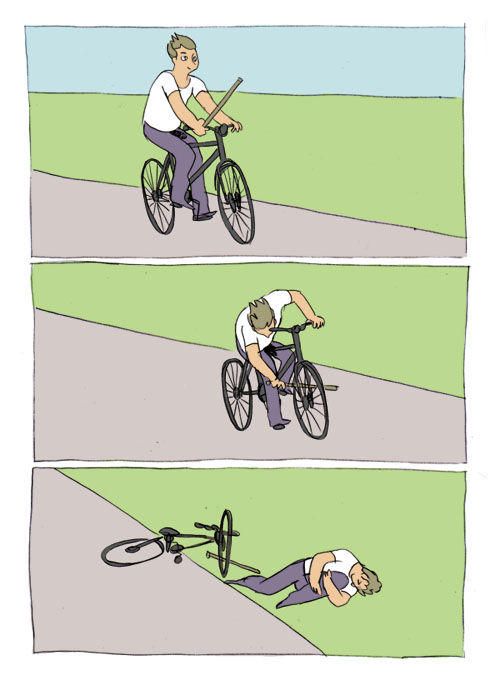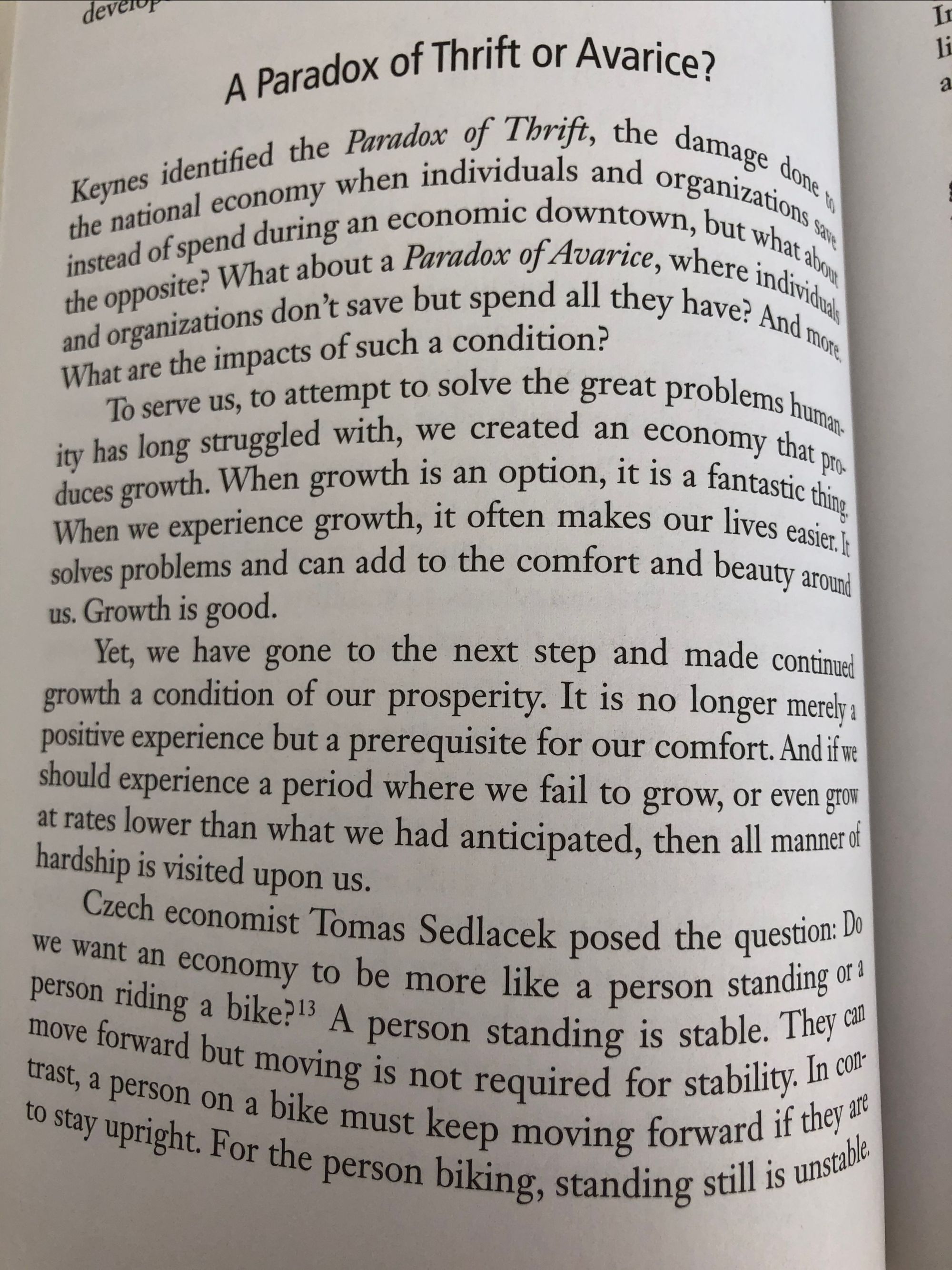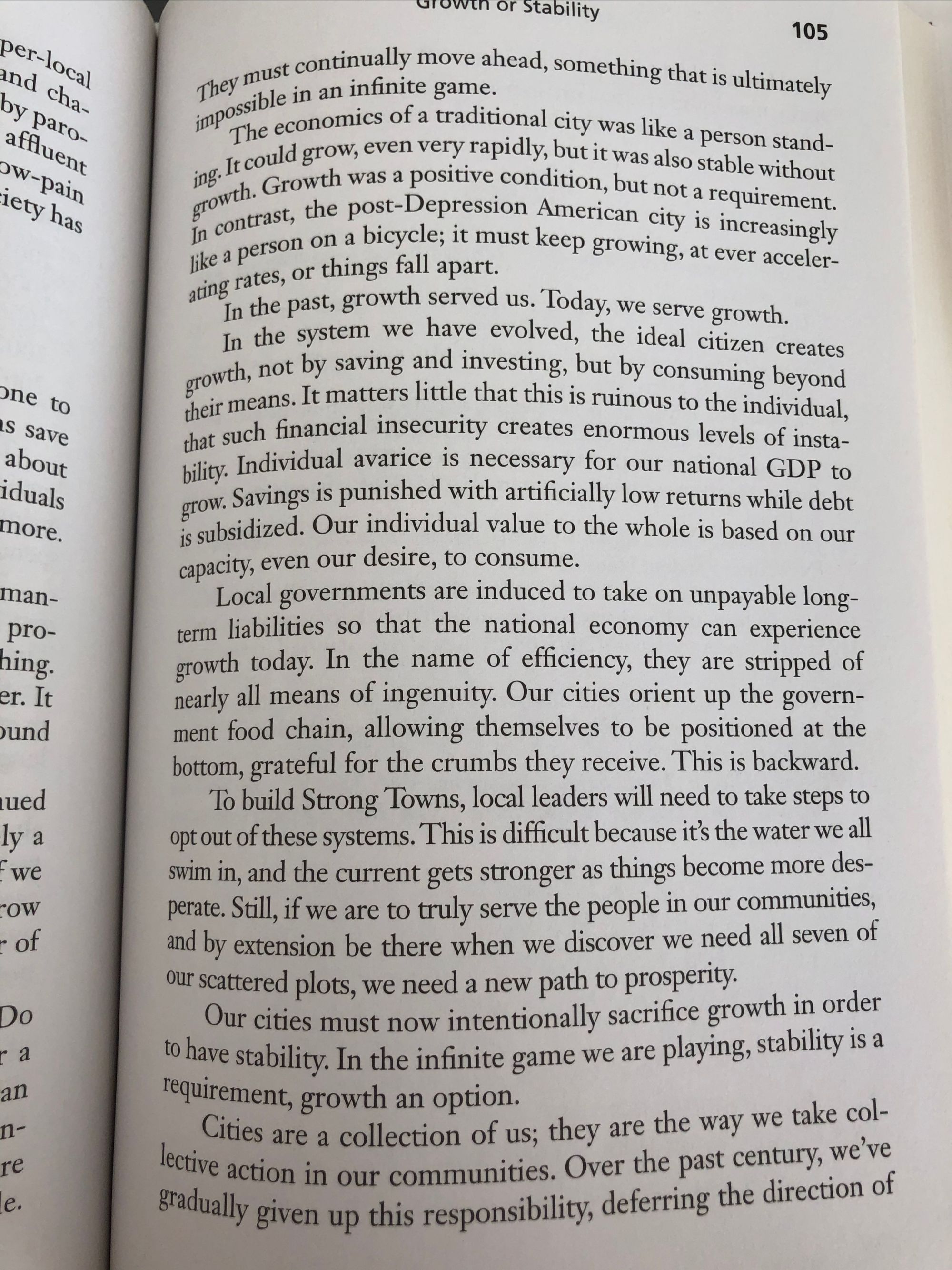From the Marty’s Bent Newsletter




A few months ago, I shared a section from Charles Marohn’s book, Strong Towns, that was brought to my attention by Wrath of Gnon
on Twitter. Since then, I picked up the book, read it, and have been
skimming through it again on the weekends because Charles does an
incredible job of putting our current condition into context and
highlighting the source of many of the problems that exist today,
short-term thinking and a world addicted to debt.
This particular
section really stuck out to me, so I thought I’d take some time to
share it in this rag and expand on the topic a bit.
The question
posed by Tomas Sedlacek is a very important question to reflect on in
your Uncle Marty’s opinion. Do we want an economy more like a person
standing or riding a bike? Do we want to be forced to keep growth up at
all costs lest we tip over and severely hurt ourselves? Or do we want
the ability to stop from time to time when the situation calls for it?
Taking a break to recalibrate and readjust priorities if we find
ourselves wandering astray and getting ourselves into debt-fueled holes
we can’t get ourselves out of. Serving the needs of people instead of
growth at all costs.
I don’t think any of you freaks reading this
will disagree; the world currently finds itself on a bike that not only
needs to keep moving forward, but moving forward at a high pace lest
global GDP falls below a level that is able to service the interest on
the debt that has been accrued. And worse yet, everyone feels forced to
play the game. To most, it seems to be the only game in town.
But,
as Charles points out, it doesn’t have to be that way. If small towns,
municipalities and cities had the balls to opt out and take their
destiny into their own hands, they could take incremental steps to break
away from the tyranny of the bike and stand on their own two feet.
This
may actually be the only way out of the tyranny of the modern “growth
at all costs” mindset; incremental, bottom up changes from local
governments that make the conscious decision to take agency over their
futures and accept that sacrificing growth may be in order. Tightening
the belt may not be as bad as some people think. Sure, it may hurt at
first, but at this juncture it seems like something worth doing.
It’s time to make savings cool again at the local level. Start with yourself and move up from there.
